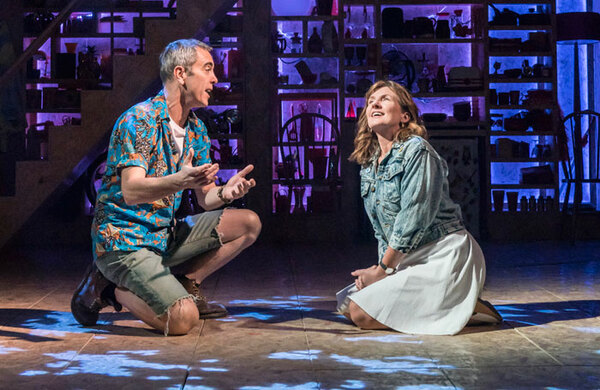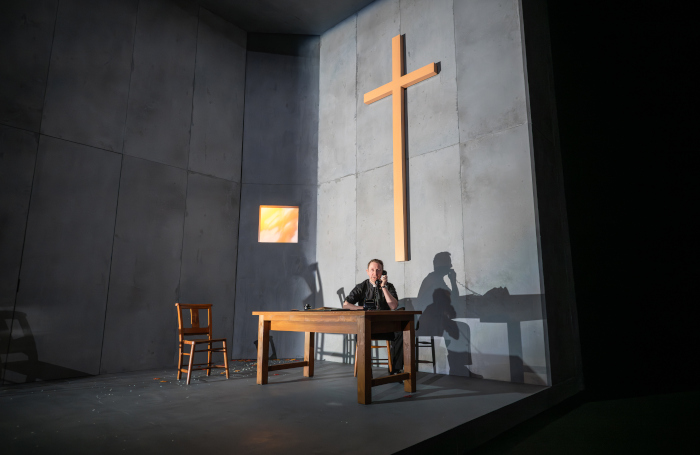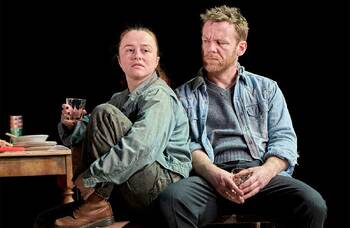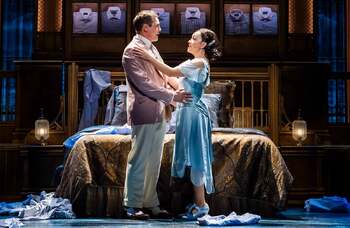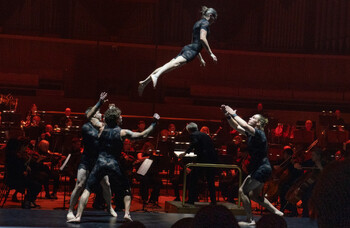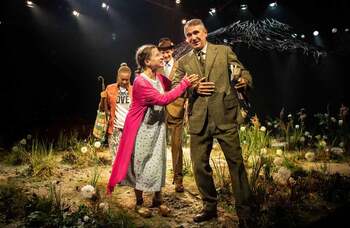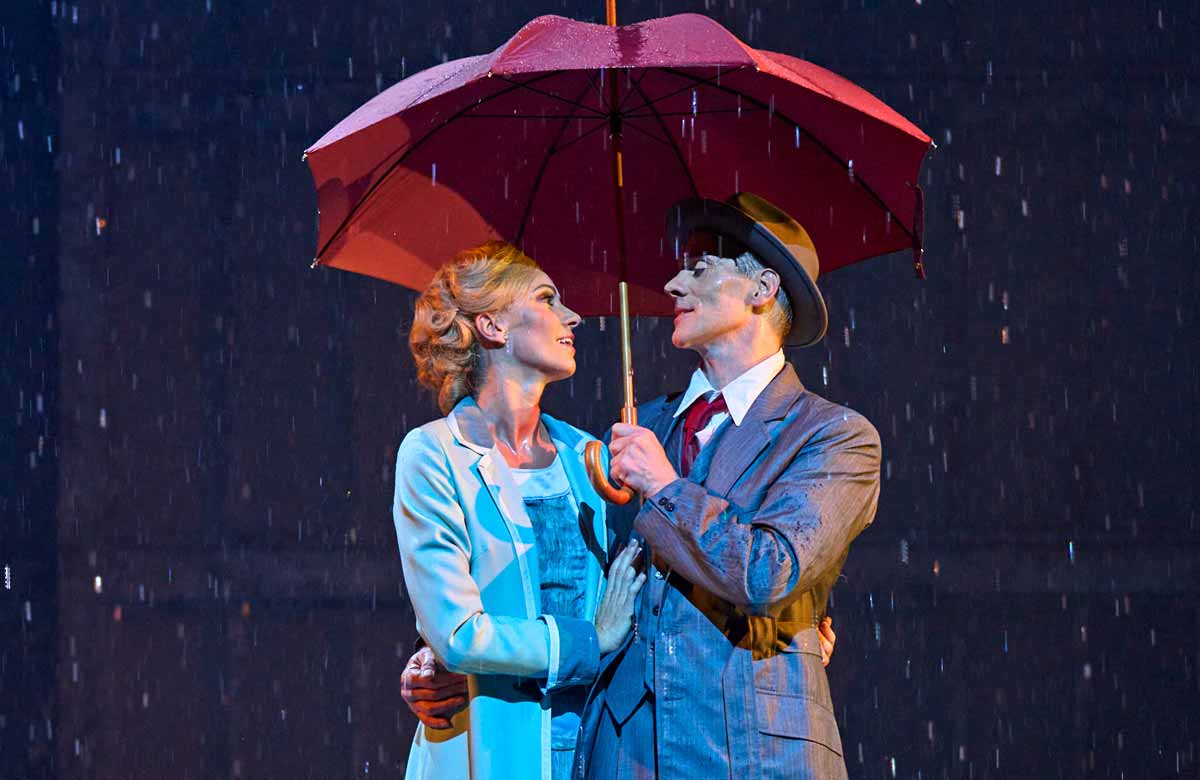Plenty
The title of David Hare’s 1978 play has never felt more ironic. Visible signs of the impact of austerity can be seen everywhere, even in the pretty streets of Chichester.
Spanning 20 years from the 1940s to the 1960s, Hare’s play is an account of the life of Susan Traherne, who as a young woman of 17 was working for the Special Operations Executive in occupied France. She emerges from the war determined to have a child on her own terms, to live on her own terms, but life slowly erodes her. She finds herself stuck in a marriage to a loyal and loving but unexciting diplomat husband and struggling with mental illness despite the cushion of money his job affords them.
Plenty is both a portrait of a woman who is flawed, complex, volatile and disillusioned, and a pulse-taking of a nation finding its feet in peacetime. Georgia Lowe has constructed a glass-floored set, at first scattered with packing crates, later an excess of vases, flowers and a symbolic abundance of gleaming red cherries. A curtain covering the back wall doubles as a screen for Nina Dunn’s video projections: lots of striking close-ups of lips and eyes.
Director Kate Hewitt draws some strong performances from her cast. Rachael Stirling’s Susan is a bit over-stated at first, we never quite get a sense of her youthful vigour. She’s much better at conveying someone ultimately numbed by depression, medication and the prospect of another spell “in the bin”. She seems to thin before our eyes.

Rory Keenan is sympathetic and anguished as the husband who knows he will never be enough for his wife. He really sinks his teeth into the part, while Yolanda Kettle makes the most of the underwritten role of Sarah’s more bohemian and seemingly freer friend.
But Hewitt never finds a way of countering the cavernous nature of the space. It’s hard to create a sense of intimacy and connection in this hanger-like venue, resulting in an emotionally remote production. Occasionally people emerge from the curtain to fill the stage but for the most part the production is static and subdued, the actors aiming lines of dialogue into the middle distance. If anything the video – distracting rather than illuminating – serves to create another barrier. The somewhat gloomy lighting doesn’t help.
The play’s depiction of men in power unblinkingly doing damage, as much through incompetence and indifference as intention, remains potent. A brief subplot about the realities of seeking an abortion at a time when it was illegal (“three months later and, wham, the knitting needles”) also feels dismayingly timely. Though the last scene is one of warmth and contains a note of hope, for too long the production is stiff and chilly.
More Reviews
More Reviews
Recommended for you
Most Read
Across The Stage this weekYour subscription helps ensure our journalism can continue
Invest in The Stage today with a subscription starting at just £7.99

